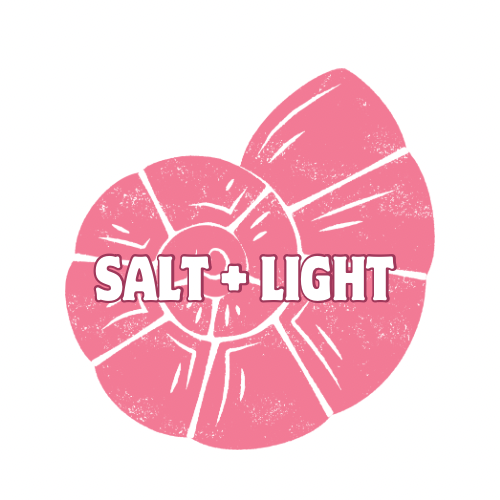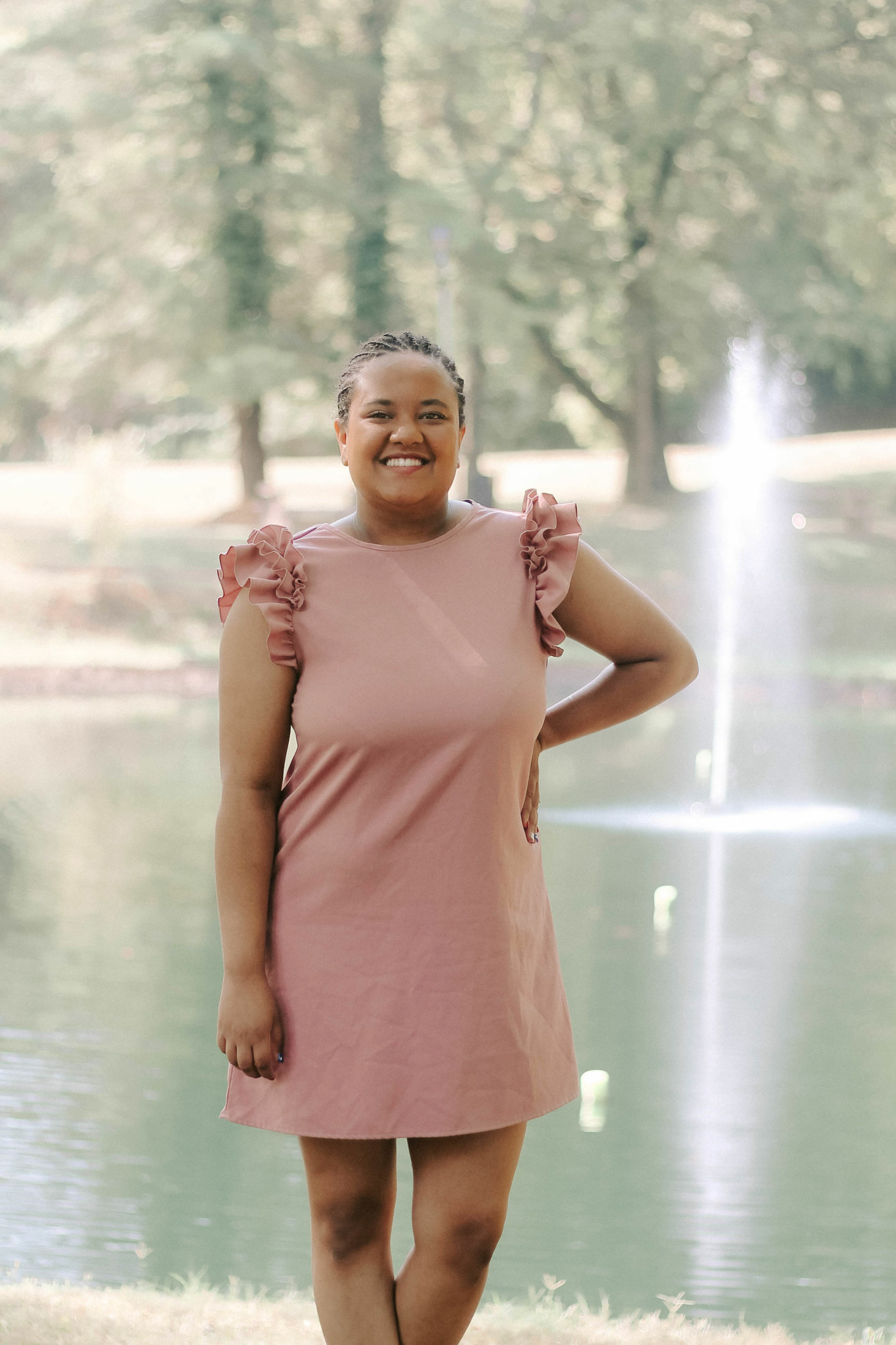We recently connected with Esther Couch and have shared our conversation below.
Hi Esther, thanks for joining us today. Coming up with the idea is so exciting, but then comes the hard part – executing. Too often the media ignores the execution part and goes from idea to success, skipping over the nitty, gritty details of executing in the early days. We think that’s a disservice both to the entrepreneurs who built something amazing as well as the public who isn’t getting a realistic picture of what it takes to succeed. So, we’d really appreciate if you could open up about your execution story – how did you go from idea to execution?
It all started with a burden on my heart. I remember sitting with my Bible one day, reflecting on the state of young women around me—how many were hungry for truth, for sisterhood, for a space where they could grow spiritually but didn’t quite know where to go. I kept hearing the phrase “be salt and light” echo in my spirit. That verse in Matthew came alive in a new way, and I knew—I was being called to help create that space.
The idea for Salt and Light was born right there, in a moment of prayer. But having the vision was just the first part. The very next day, I wrote it all down—everything that came to mind. Who it would be for (high school and college-aged girls), what it would feel like (real, honest, rooted in Scripture), and even where we’d meet (outside, by the beach—a place where the presence of God always felt tangible).
From there, I shared the idea with a close friend—my co-founder—and the response was instant confirmation. We prayed together, brainstormed, and began mapping out the details. What day of the week would work best? What would each gathering look like? Would we teach from a book of the Bible or follow a theme? How could we keep it intimate but still open for new girls to join?
Over the next few weeks, we researched permits for beach gatherings, put together a rough outline of the first month’s teachings, and designed a simple but inviting flyer to spread the word. I also started reaching out to girls I knew—friends, former students, girls from church—just to share what we were dreaming up and see who might be interested.
We had to figure out logistics like what time the sun sets, how to manage weather changes, how to create a welcoming environment without a physical building, and even what kind of snacks or worship music might help set the tone. It was a lot of little things, but every detail felt like it mattered.
Finally, we launched. The first gathering was small, but it was powerful. We opened our Bibles, sat on blankets, and shared hearts. It was clear: this wasn’t just a good idea—it was something God had ordained. Week after week, it grew. Slowly, intentionally. Girls started inviting friends. The conversations got deeper. We laughed, cried, worshiped, and studied Scripture together. And just like that, Salt and Light became more than a vision—it became a movement.

Great, appreciate you sharing that with us. Before we ask you to share more of your insights, can you take a moment to introduce yourself and how you got to where you are today to our readers.
⸻
Hi there! My name is Esther Couch, and I’m the co-founder of Salt and Light, a faith-based girls’ fellowship rooted in Scripture, sisterhood, and the freedom of being outdoors in God’s creation—usually by the beach. I started this community with a simple vision: to give young women a safe space to grow in their faith, build authentic friendships, and explore who they are in Christ.
I’ve been walking with the Lord for about six years now, and throughout that journey, one thing has always stirred my heart—discipleship. Not just the kind you hear about in sermons or study in books, but the kind that happens in real life: around bonfires, in group texts, on late-night prayer calls, and yes, even on the sand with Bibles open and waves crashing nearby.
Salt and Light was born out of a desire to bridge the gap between faith and real life for high school and college-aged girls. These are such formative years, full of questions about identity, purpose, relationships, and direction. I saw a need for a space that wasn’t performance-driven or pressure-filled—just real girls, coming together to seek God and do life in community. So we created that space.
What sets us apart is the intentionality behind everything we do. This isn’t just another Bible study—it’s a place where girls are known, seen, challenged, and loved. We don’t water down the truth of God’s Word, but we also don’t pretend like life isn’t messy. Our gatherings are centered on Scripture, but they’re also full of laughter, vulnerability, worship, accountability, and joy. Whether we’re diving into the book of John or unpacking what it means to walk by faith in hard seasons, everything is grounded in grace and truth.
Right now, our main “offering” is our weekly beach gatherings, but we’re slowly expanding into discipleship tools, digital content, and mentorship opportunities. We’re dreaming big—retreats, devotionals, merch with a mission, and one day, even leadership training for girls who feel called to teach or lead in their own communities.
What I’m most proud of isn’t a product—it’s the transformation I get to witness. Girls who once felt unsure or overlooked now walk with boldness. They’re praying out loud, inviting friends, asking hard questions, and stepping into leadership. That’s the fruit of Salt and Light—and it’s only the beginning.
If there’s one thing I want people to know about me and this community, it’s this: we’re not here to impress; we’re here to impact. We’re not building a platform—we’re building people. My prayer is that every girl who encounters Salt and Light walks away with a deeper love for Jesus, a stronger sense of who she is, and the courage to be salt and light wherever she goes.

Can you tell us about a time you’ve had to pivot?
⸻
One of the biggest pivots I’ve ever had to make happened just six weeks before launching Salt and Light. What had started as a beautiful vision shared between me and my friend and co-founder, Catherine, suddenly shifted. We had spent months dreaming together, praying, planning, and mapping out what this girls’ fellowship would look like. But life happened. Things shifted for her personally, and one day, she told me she couldn’t commit to helping anymore.
It hit hard. Not just because I felt the weight of everything falling on my shoulders, but because this wasn’t just a business partner—this was a friend. I was hurt. I was overwhelmed. And for a moment, I honestly questioned whether I should go through with it at all.
But the vision wouldn’t let me go.
I went back to the drawing board, this time alone—but not really alone. I leaned into God more deeply than I ever had. I asked Him, “Was this Your idea or just mine?” And the peace that came was undeniable. This was still His vision. He had called me to it. And He would provide what I needed.
So I pivoted. I reassessed every plan. I simplified where I needed to. I reached out to a few trusted women to help me behind the scenes. I restructured the gatherings to reflect my strengths and what I felt God was truly asking me to offer. And I launched anyway.
That pivot didn’t just change the structure of Salt and Light—it refined the heart of it. It reminded me that obedience doesn’t always come with a perfect support system. Sometimes it’s just you and the Lord, walking by faith and trusting that He’ll meet you in the deep end.
Looking back, I’m actually grateful for that hard moment. It showed me what I was made of. It taught me to lead with confidence, to hold the vision with open hands, and to trust that even when people walk away, the calling still stands.

Do you have any insights you can share related to maintaining high team morale?
One of the biggest lessons I’ve learned about managing a team and keeping morale high is this: lead with clarity, but love with intention.
People want to know what’s expected of them, but even more than that—they want to know they’re seen, valued, and cared for beyond just what they can do. When you’re leading a team, whether it’s two people or twenty, relationships matter. So I always try to create a culture of honest communication, mutual respect, and spiritual encouragement.
Here’s some advice that’s helped me personally:
1. Communicate clearly and consistently.
Unspoken expectations or last-minute decisions can wear people down quickly. I’ve found that when I clearly lay out the vision, roles, timelines, and values up front, it frees people up to serve with confidence and creativity. No one wants to feel like they’re guessing their way through a role.
2. Set the tone with gratitude.
As a leader, it’s easy to get caught up in the big picture and forget to say “thank you” for the small things. But the small things are the big things to your team. Celebrate wins, affirm effort, and let people know their contribution matters—even if it’s not the most visible.
3. Don’t just lead people—walk with them.
When morale dips, it’s often because people feel disconnected. So I try to stay present. I check in, pray with my team, listen to feedback, and try to model humility. The best leaders I’ve known are the ones who weren’t afraid to serve alongside their team—not just above them.
4. Make space for rest and joy.
Especially in ministry or mission-driven work, burnout can creep in. I’ve learned to encourage breaks, protect boundaries, and incorporate fun and fellowship. Joy isn’t just a nice extra—it’s fuel for the journey.
At the end of the day, people don’t follow titles. They follow trust. And when you lead from a place of love, purpose, and consistency, morale naturally rises—because people feel like they’re part of something bigger than themselves and they know they matter in it.
Contact Info:



Image Credits
Chloe Brianna Photography


